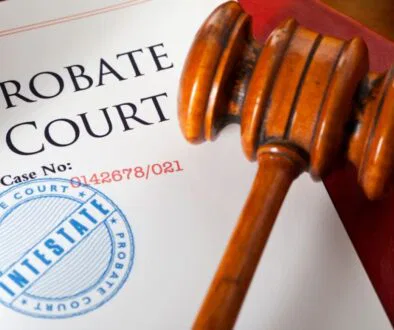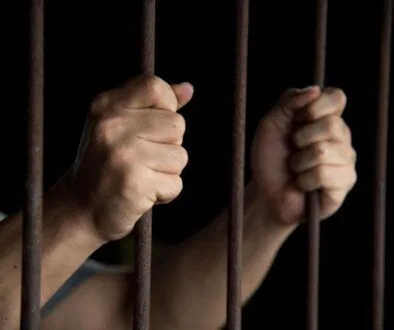Snitch in Prison: What are the Consequences?

Published March 25, 2024
There are a lot of horrors in the discourse of “snitch culture” in prison. It’s so terrifying that one looks up on the net. There are not many articles diving deep into this topic. Well, one can argue that it is sensitive to talk about. But raising awareness can go a long way.
In this article, we’ll get honest about snitching in prison. What are the consequences? We’ll discuss everything about it. We’ll also have a section on protecting yourself while locked up. Let’s start.
Snitch in Prison: What Is Snitching?
Snitching refers to the act of an inmate informing authorities about illegal or prohibited activities within the prison, often involving fellow inmates. It can include reporting on the possession of contraband or plans of escape. Moreover, it’s about involvement in gangs or other practices that violate prison rules or laws.
Snitching is particularly fraught because of the unwritten codes of conduct among inmates. These codes often emphasize loyalty and solidarity against prison authorities.
The motivations for snitching in a prison setting can differ. Some lockups might do this in the hope of receiving preferential treatment, some may desire reduced sentences, and some may also want protection from threats within the prison. There are also cases when others might be forced into snitching by authorities. Further, they can also do so out of a sense of moral obligation or self-preservation.
What Happens if You Snitch in Prison: The Bad Side
Snitches have a rough time in prison. Some snitches were robbed of their canteen. Some might be stabbed.
The stabbing was meant to not only remove the snitch from the population. It also acts as a warning to other prisoners to keep their mouths closed. Typically, snitches were stabbed in the neck and life-sustaining organs if they were trying to kill them. Some were slashed across the face to be marked for life as a “snitch.
Beyond physical violence, snitches often became social pariahs within the prison community; this isolation can make prison life significantly more difficult. Friendships and alliances are critical. They offer protection, emotional support, and access to resources within the prison system.
What Happens if You Snitch in Prison: The Good Side
Prison authorities may place snitches in protective custody for their safety. This can offer some level of protection from immediate physical harm, yet it involves significant restrictions on freedom and activities in the penitentiary.
Snitching can also sometimes benefit the informant. One good thing about it is sentence reduction. Many federal convicts receive reduced sentences in exchange for cooperating with authorities.
Still, the potential benefits do not negate the risks and negative repercussions within the prison community.
How Do People Who Snitch Get Dealt With in Prison?
People who are defined as “snitches” in prison often face harsh treatment from their fellow detainees. It is due to the prison culture’s unwritten codes. The codes prioritize loyalty and silence regarding illegal activities or rule violations. They may face a range of social and physical punishments, such as:
- Isolation
- Being beaten up
- Stabbed
- Deliberately marked
- Threats
- Loss of trust and support from other prisoners
- Being labeled as a “rat.”
- Being targeted for extortion or exploitation
- Increased risk of being involved in fights
How To Protect Yourself in Prison As a Snitch
1. Seek protective custody
Suppose you believe your life is in danger due to being labeled a snitch. Request protective custody from authorities. It can offer a level of safety from immediate physical harm.
2. Maintain a low profile.
Avoid drawing attention to yourself. Engaging in activities that keep you under the radar can help mitigate risks. Avoid conflicts. Do not get involved in gambling or borrowing.
3. Develop conflict-resolution skills
Learn how to de-escalate conflicts verbally. It can be an invaluable skill. Sometimes, talking through disagreements can prevent situations from turning to violence.
4. Be respectful
Treat everyone with respect. It goes both for inmates and guards. Showing respect can sometimes alleviate hostility. It can also cut the likelihood of being a target.
5. Avoid gang involvement
It might seem tempting to seek protection by aligning with a gang. Yet, it can lead to further complications and obligations that might increase the risk of harm. Gang affiliation can also make you a target for rival gangs.
6. Seek supportive relationships
Build a small circle with fellow inmates who understand your situation. This should give you some level of social support and protection. Yet, be cautious in picking whom to trust.
7. Stay physically and mentally healthy.
Maintain your physical health through exercise. Care for your mental health through reading, meditation, or engaging in available educational programs. These acts can help you navigate prison life more effectively. Being in good health can also make you less of a target.
8. Understand your rights
Knowing your rights as a prisoner can empower you to seek help when needed. Suppose you feel your safety is compromised. It’s critical to communicate it to the authorities in a correct manner.
9. Educate yourself on the prison system.
Understanding the dynamics and unwritten rules of prison will help you navigate its complexities more safely. Being informed can also help you make better decisions about whom to trust and how to act.
10. Communicate carefully
Suppose you need to report something for the safety or well-being of others. Do so discreetly to avoid further labeling as a snitch. Anonymous tips can be a safer way to report dangerous situations without exposing yourself.

ADVERTISEMENT
Frequently Asked Questions About Snitch in Prison
Does snitch mean betrayal?
The term snitch does not directly mean betrayal. Snitch primarily refers to informing someone, especially in a secretive manner, usually to an authority figure. It involves revealing wrongdoing or illegal activities. Betray, on the other hand, carries a broader and more emotional connotation. It implies a breach of trust or loyalty.
What is the mark of a snitch?
A mark of a snitch, often a scar or slash, can sometimes be forcibly given to individuals perceived as informants or snitches. It is a form of retribution or warning. This violent act manifests the “snitches get stitches” adage. It signifies that those who inform authorities about criminal activities might face physical harm.
Is snitching telling the truth?
Snitching involves disclosing truthful information about wrongdoings. Therefore, it usually entails telling the truth about something or someone. Its primary intent is to reveal hidden or unknown data about what the informant believes should be brought to attention.
The snitching culture in prison is a horrifying truth. Those who have been snitches can only tell what they’ve been through, but we can never measure up to their sufferings. With our guide, we hope to shed light on this topic. There’s a safer way of revealing the truth in the prison.
Reduce Your Jail Call Costs By Up To 90% Per Minute With GlobalTel
GlobalTel’s inmate calling service lowers jail call per minute rates by up to 90% for jail calls from US facilities. Sign up now and use the special jail call phone number we create for you to eliminate the long distance jail call fees. Try GlobalTel for only $45.99 for 90 days. Make US/domestic and international jail calls at the local rate and stay connected to your incarcerated loved ones for less. Learn more about how to sign up for calls from inmates here.

This Content Is Fact Checked
Our esteemed team of specialists has thoroughly validated the accuracy of this information. Discover further details about the rigorous editorial guidelines for our website here.
ADVERTISEMENT

About The Author
I am Tracy Gorman, a seasoned writer with a passion for crafting content on various subjects. I possess the expertise to delve into any niche and deliver exceptional articles.




